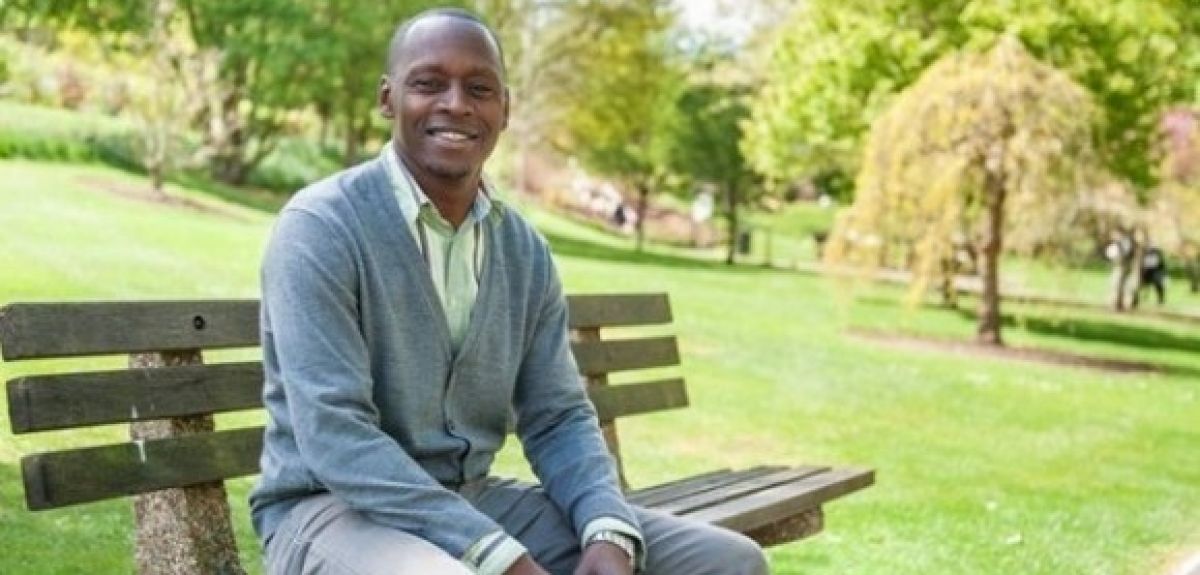
Meet Oxford's Director of Student Welfare and Support Services
Rotimi Akinsete started as Oxford’s Director of Student Welfare and Support Services in Michaelmas term 2021. Joining from University of Arts London, he has 25 years’ experience in higher education and is a highly respected counselling practitioner in his own right. Rotimi is also actively engaged in national developments, and at Oxford, is responsible for welfare areas including the Counselling Service, Disability Advisory Service and Sexual Harassment and Violence Support Service.
How have you found your time at Oxford so far?
Oxford is a large and complex organisation, and I am still navigating it all, but it is also a place where you can find opportunity to develop new approaches and build new partnerships; I am excited and keen to draw on this huge potential for change.
What do you think are some of the biggest challenges facing students’ welfare and wellbeing and how is the University responding?
A number of important steps have been made in our continued efforts to improve the base level of excellent support and advice through my services. Whilst my area has had the benefit of a recent up-lift to collegiate University budget funding, demand for every area under my remit is increasing across the board. This has been particularly evident after the unprecedented challenges faced by students during the pandemic.
As Director I am committed to continuing to look at ways to improve our services to support the wellbeing, safety, and mental health of our student body, ensuring that all students have access to the services they need in the face of increasing demand. In continuing our focus around Oxford Against Sexual Violence and the development of our Support Service, this year, we have introduced a student peer consent training pilot launch, and colleges now have access to a new list of independent investigators and disciplinary panel members to support them in investigating cases of sexual violence and harassment.
Partnerships with colleges, divisions and departments through areas such as the recently formed Joint Student Mental Health Committee or with local NHS partners, the local authority, Thames Valley police, community services and others are key to working with in my role here.
Has your impression of Oxford changed since you started?
Of course, I feel proud to be working in a world class institution and in a position that is now occupied, I’m told, for the first time by someone who isn’t white and who isn’t female. And yes, interestingly enough, that does matter.
The institution itself is very much what I expected it to be - and plenty of what I didn’t expect; still somewhat old-school in parts, but also very forward thinking, ground-breaking, forthright and brilliant.
You only have to switch on the news in the morning to hear from yet another specialist commenting on one ground-breaking issue or event to make you realise that wonderful and important things happen here. Yes, I do think my department is conducting work that I believe is just as meaningful and impactful and that make a significant difference to the lives of others. You just do not hear about it most of the time.
What involvement do you have with students?
I still advise and work directly with students and offer a range of advice and support around, for example, student induction or Fitness to Study processes or on cases of racial harassment. It is important for me to continue to do so, although it is not the main part of my role. I enjoy meeting regularly and work very closely with members of Oxford SU, but my main responsibility lies with developing a very active and increasingly important set of services that exist to ensure our student population receive the right type of support and in a timely manner.
How does your work extend beyond Oxford?
My background is as a therapeutic counsellor and clinical supervisor, with a particular interest in racial politics, identity and lifelong learning. I also enjoy writing articles, for example I have written on working with young men at risk of violent crime and radicalisation; understanding student’s experiences with peers, academic staff and family members and even theatre reviews on plays featuring psychotherapeutic subtexts.
If time and energy allow, I like to get my hands dirty on roundtables, workshops and discussion panels featuring aspects of student support and get to meet some interesting people in the Office for Students, the Department for Education and Universities UK. My role as an executive member of the Association of Managers of Student Services in HE (AMOSSHE) provides scope to draw on sector-wide good practice This external activity, directly linked to my work at Oxford, provides a wider perspective of student affairs both nationally and internationally and hopefully helps me bring a fresh approach to my work.
How do you see your role and wider remit at Oxford?
Oxford offers a unique opportunity to be part of something innovative and a genuine chance to make real, meaningful change. I welcome the opportunity for questions to be asked of me as a Black male of West African heritage and how my perspective, including my work with the Black, African and Asian Therapy Network, can inform practice at Oxford. I hope to make meaningful contributions to the conversation about race, inclusion, identity politics and the progress the University is making in this area, following the recommendations of the Race Equality Task Force.
What are your longer-term plans for developing Student Welfare and Support Services?
There are an increasing number of enquiries from care experienced and estranged students, and many colleges are doing fantastic work in this area. My area will be a part of a coordinated approach in these developments. In addition, I’d like to consider the importance of wellbeing and extra-curricular activities like sport and the impact this has on ‘feeling good and functioning well’.
Explore student welfare and wellbeing support at Oxford.
 Student story: Finding space for Kosovo at Oxford
Student story: Finding space for Kosovo at Oxford
 Oxford students shortlisted as McCall MacBain Scholarship finalists
Oxford students shortlisted as McCall MacBain Scholarship finalists
 Student story: My time at Oxford has been deeply transformative
Student story: My time at Oxford has been deeply transformative
 Welfare blog: Dealing with imposter syndrome
Welfare blog: Dealing with imposter syndrome
 Student story: Rowing sabbatical officer
Student story: Rowing sabbatical officer